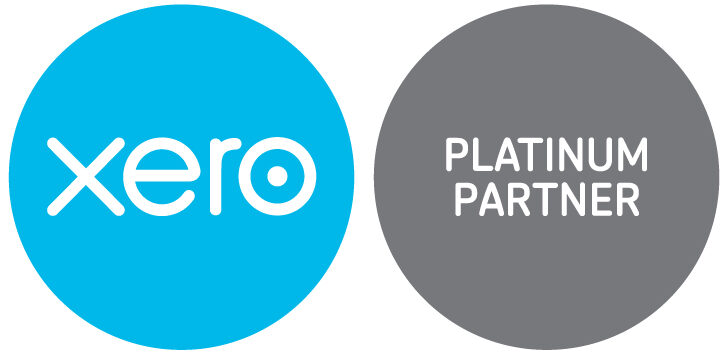VAT rules post Brexit
The UK is due to leave the EU on 31 December 2020 and the VAT rules will change as a result. Outlined below is the current guidance as released by HMRC. The VAT rules applicable to you will differ depending on whether you supply goods or services to non-UK customers.
Supply of Services
Supplies from the UK
The current rules differentiate between supplies to businesses, B2B supplies and supplies to consumers, B2C supplies.
B2B supplies
The general rule is that supplies to EU businesses are dealt with under the reverse charge procedure and the purchaser accounts for both output VAT and input VAT through their own VAT return. This will not be changing as a result of Brexit. The UK supplier will not charge VAT because the supply is deemed to take place in the EU country where the customer belongs.
Following Brexit, the supply will still be deemed to take place in the country where the customer belongs which is the same as the current rule for supplies of services to persons outside the EU.
B2C supplies
At present most supplies to consumers (and other non-business customers) who belong in another EU country are treated as UK supplies liable to VAT at the standard 20% rate unless they fall within the zero-rated, exempt, or 5% categories or they relate to property (in which case the VAT liability arises in the country in which the property is situated).
Services provided to EU consumers after 31 December 2020 will be zero-rated. As the place of supply under EU law is the UK, they should not be VATable in the country in which the customer lives either. Accordingly, there will be no requirement to register for VAT in that country In respect of supplies to consumers.
Special types of supply
There are exceptions to these general rules. Some types of service, such as supplies in relation to UK land, transport, catering, hiring goods situated in the UK, broadcasting, electronically supplied services, telecommunication services and admission to events in the UK are treated as made in the UK and are currently liable to UK VAT even where the customer is in the EU. Such supplies will continue to remain subject to VAT after Brexit.
If any such supplies are made to EU customers after 31 December 2020, there could be an obligation to register for VAT in the country in which the customer resides or the services are used.
Supplies of services from outside the UK
The reverse charge regime will continue to apply to supplies received from businesses in EU countries in the same way as it does at present for supplies of services from businesses outside the EU, for example from the USA, India or Australia.
Supply of Goods
Exports of goods
There will be no change to the VAT rules on exports to non-EU countries. Supplies to such countries will continue to be zero-rated.
Brexit could however have a significant effect on supplies to EU countries. Currently, no VAT is charged where goods are moved between EU countries. After 31 December 2020 the sale will be a zero-rated export from the UK and import VAT will arise in the EU country to which the goods are sent.
Where goods are sent from the UK to an EU country a deemed supply will arise in that country. The deemed supply will be made by the “importer of record” and it is this deemed supply which gives rise to import VAT. The importer of record is the person named as the importer in the entry documents.
If the UK supplier (or an agent acting on its behalf) is the importer of record then the UK supplier will need to register for VAT in that other country, pay the import VAT and charge that country’s VAT on its supply to the customer. Conversely, if the customer is the importer of record, it is the customer that is liable for the import VAT and there will be no need for the UK supplier to register in that country.
Many EU countries require the importer of record to be established in the EU. It may not, therefore, be possible for a UK supplier to sell goods to such countries unless the customer is the importer of record. Accordingly, if a UK supplier currently handles the import of goods to other UK countries, it is likely to be important either to amend the arrangements so that the customer becomes the importer of record or to establish a branch or other business establishment in the EU.
Northern Ireland
The above does not cover matters specified in the Northern Ireland protocol. The Government has published further information on what the Northern Ireland Protocol means for moving goods into and out of Northern Ireland. At the heart of the guidance is the commitment to provide extensive support for businesses engaging in new processes. In particular, the government will establish a new Trader Support Service.
This is a free, optional service, for businesses and their appointed agents, for moving goods between Great Britain and Northern Ireland and importing goods into Northern Ireland from outside the EU from January. It will provide an end-to-end service that will guide businesses and agents through processes, including handling digital and safety and security declarations on behalf of traders, at no additional cost.
HMRC is asking businesses and agents to register their interest in the Trader Support Service by filling in the appropriate form and emailing it to HMRC.
Postponed Accounting
For businesses registered for VAT in the UK, it will, from 1 January 2021, be possible to account for import VAT for goods imported from anywhere in the world on your VAT return. This will be done by declaring and recovering import VAT on the same VAT return, instead of having to pay it upfront and recover it later. This is commonly referred to as “postponed accounting” and offers a simplification and cash flow advantages compared to the current rules for imports from outside of the EU.
The normal rules about what VAT can be reclaimed as input tax will apply.
Postponed accounting can be used to account for import VAT if:
- the goods are imported for use in a business;
- the business’s EORI number, which starts GB, is included on the customs declaration; and
- the business’s VAT registration number is shown on the customs declaration, where needed.
Special procedures
Import VAT on goods put into a Customs special procedure, such as a bonded Customs warehouse, should be accounted for on the VAT return covering the date when the declaration that releases those goods into free circulation is made.
Situations where postponed accounting will not apply
It will not be possible to use postponed accounting for imports made using simplified declarations.
Goods in consignments not exceeding £135
From 1 January 2021 imports valued at under £135, which are currently exempt from VAT, will become taxable. Furthermore, the place of supply will always be treated as being in the UK, so the overseas supplier will become required to register for VAT here. This will apply even if he or she makes only a single sale in the UK as he will become a non-established taxable person (NETP). It will be interesting to see if small foreign businesses, which sell goods by mail order or through their internet site, will be willing to continue to sell to UK customers after 31 December.
As a result of this change online marketplaces involved in facilitating the sale of imported goods, such as E-bay or Amazon, will be responsible for collecting and accounting for the VAT on sales through such marketplaces, even when the goods are in the UK at the point of sale.
Business-to-business sales not exceeding £135 in value will also normally be subject to these new rules. However, where the business customer is VAT registered and provides its VAT registration number to the seller, the VAT can be accounted for by the customer by means of a reverse charge.
Next steps
Please contact us if you have any questions regarding the VAT implications of Brexit or any other Brexit related questions and we will be pleased to help you. If we don’t have the answer, we will know someone who does!







 Production
Production